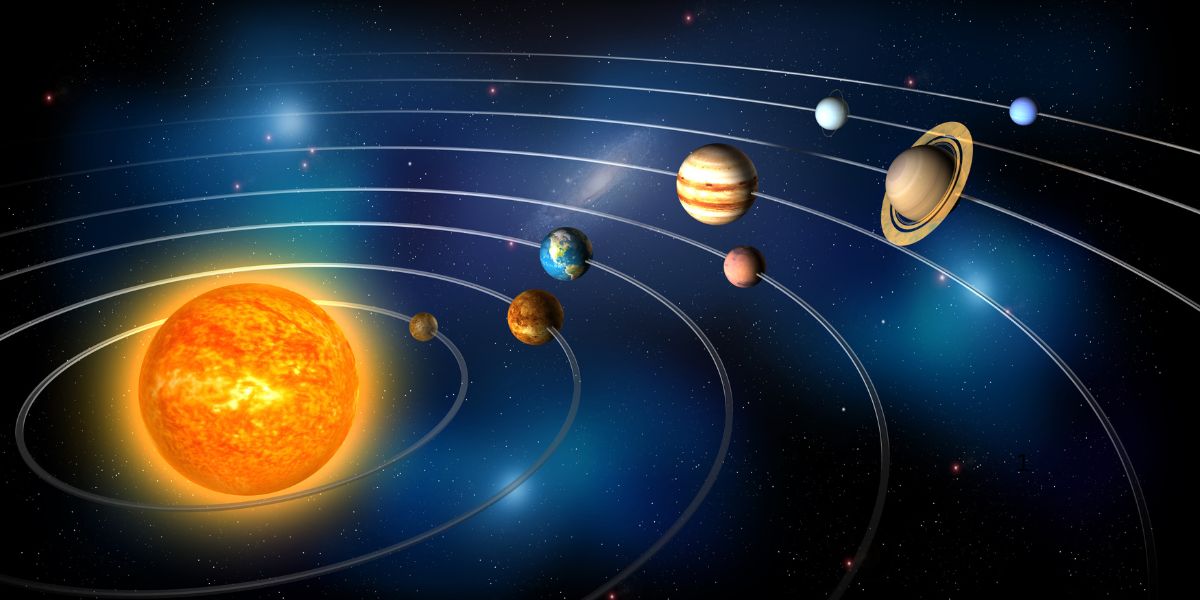Did you know that Venus, the second planet from the Sun, is even hotter than Mercury, the closest planet? That sounds strange, right? If Mercury is closer to the Sun, shouldn’t it be the hottest?
Well, the answer is not so simple! Venus has a secret trick that makes it the hottest planet in our solar system. And no, it’s not because it’s trying to win a “hottest planet” contest! The real reason is hidden in its thick, cloudy atmosphere.
So, why does Venus beat Mercury in temperature? Let’s find out!
How Hot Is Mercury?
Mercury is the closest planet to the Sun, so it gets a lot of heat. During the day, temperatures can reach 800°F (430°C)—hot enough to melt some metals! But at night, Mercury cools down fast because it has almost no atmosphere to trap heat. Temperatures can drop to -290°F (-180°C).
Fun Facts About Mercury:
- A day on Mercury (one full rotation) is longer than its year (one trip around the Sun)!
- It has no moons or rings.
- Despite being close to the Sun, it’s not the hottest planet.
How Hot Is Venus?
Venus is much hotter than Mercury, with surface temperatures around 900°F (475°C)—hot enough to melt lead! Even at night, Venus stays scorching hot. Why? Because of its thick, toxic atmosphere filled with carbon dioxide, a greenhouse gas.
Why Doesn’t Venus Cool Down?
- Its thick atmosphere traps heat like a giant blanket.
- The clouds reflect sunlight but also keep heat from escaping.
- The air pressure on Venus is 90 times heavier than Earth’s!
Why Is Venus Hotter Than Mercury?
Here’s the big secret: Venus has a runaway greenhouse effect.
What Is the Greenhouse Effect?
The greenhouse effect happens when gases in a planet’s atmosphere trap heat from the Sun. On Earth, it keeps us warm. But on Venus, it’s extreme!
Why Doesn’t Mercury Have This Problem?
- Mercury has almost no atmosphere, so heat escapes easily.
- Venus has thick clouds of carbon dioxide, which trap heat like an oven.
Comparison: Mercury Vs Venus
| Planet | Distance from Sun | Average Temperature | Atmosphere |
|---|---|---|---|
| Mercury | Closest | 800°F (Day), -290°F (Night) | Very Thin |
| Venus | Second | 900°F (All the Time) | Super Thick |
Could Earth Become Like Venus?
Earth also has a greenhouse effect, but not as strong as Venus. If we pollute too much, could Earth become as hot as Venus? Probably not, but it’s a good reason to take care of our planet!
How Can We Prevent Too Much Warming?
- Use clean energy like solar and wind power.
- Plant more trees to absorb carbon dioxide.
- Reduce pollution from cars and factories.
Conclusion
Venus is hotter than Mercury because of its thick, heat-trapping atmosphere. Even though Mercury is closer to the Sun, it can’t hold onto heat like Venus does. The runaway greenhouse effect turns Venus into a burning desert world!
So, next time you look at the night sky, remember: Venus might look beautiful, but it’s a deadly furnace underneath those clouds!
What do you think? Could humans ever survive on Venus? Share your thoughts!
📌 Frequently Asked Questions
Why is Venus called Earth’s twin?
Venus is almost the same size as Earth and has a similar structure. But its toxic atmosphere and extreme heat make it very different!
Does Venus have water?
No, Venus is too hot for liquid water. Any water would boil away instantly!
Can we live on Venus?
No, the heat, pressure, and toxic air make it impossible for humans to survive there.
How long is a day on Venus?
A day on Venus (one full spin) is 243 Earth days, longer than its year (225 Earth days)!
Why does Venus shine so brightly?
Its thick clouds reflect sunlight, making it the brightest planet in our night sky after the Moon.
Has any spacecraft landed on Venus?
Yes! The Soviet Union’s Venera missions landed on Venus in the 1970s but melted quickly due to the heat.
Does Venus have seasons?
No, Venus has a very steady climate, always hot, with no seasons like Earth.
What color is Venus?
From space, Venus looks yellowish-white because of its thick sulfuric acid clouds.
Is Venus the hottest planet in the universe?
No, some exoplanets (planets outside our solar system) are even hotter!
Could Venus ever cool down?
Not likely. Its greenhouse effect is too strong, and it would take billions of years to change.
